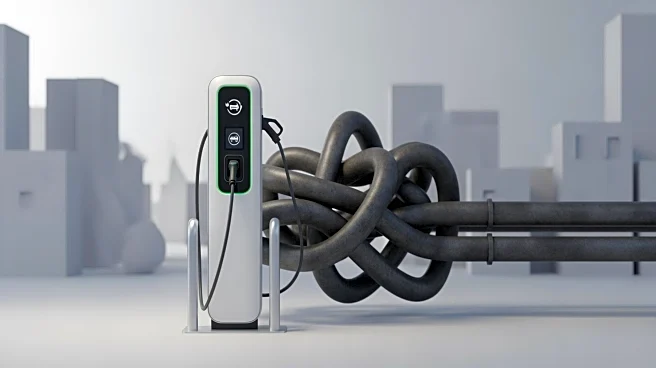What's Happening?
A study by Transport & Environment has revealed that plug-in hybrid electric vehicles (PHEVs) emit significantly more carbon than previously estimated by regulators. Contrary to the assumption that PHEVs emit 75% less carbon than traditional gasoline
and diesel cars, the study found they only emit 19% less. The discrepancy arises from the way PHEVs are used, with many drivers not utilizing the electric mode as intended. The study highlights a gap between real-world emissions and official data, with PHEVs emitting up to five times the official estimates by 2023.
Why It's Important?
The findings challenge the perception of PHEVs as a climate-friendly alternative to conventional vehicles. This revelation could impact regulatory policies and consumer choices, as PHEVs are not as effective in reducing emissions as previously thought. The study suggests that automakers have benefited from underestimated emissions, avoiding significant fines. As the EU prepares to review its carbon emissions standards, the automotive industry faces pressure to adapt to more accurate assessments of vehicle emissions.
What's Next?
The EU is set to review its carbon emissions standards for vehicles, which could lead to stricter regulations for PHEVs. The automotive industry, particularly in Europe, may face increased scrutiny and potential changes in production strategies to meet revised standards. The outcome of this review could influence global automotive policies and consumer preferences, especially as the demand for electric vehicles fluctuates.
Beyond the Headlines
The study underscores the importance of accurate emissions data in shaping environmental policy and consumer behavior. It also highlights the challenges in transitioning to sustainable transportation solutions, as technological limitations and consumer habits can undermine efforts to reduce carbon footprints.















